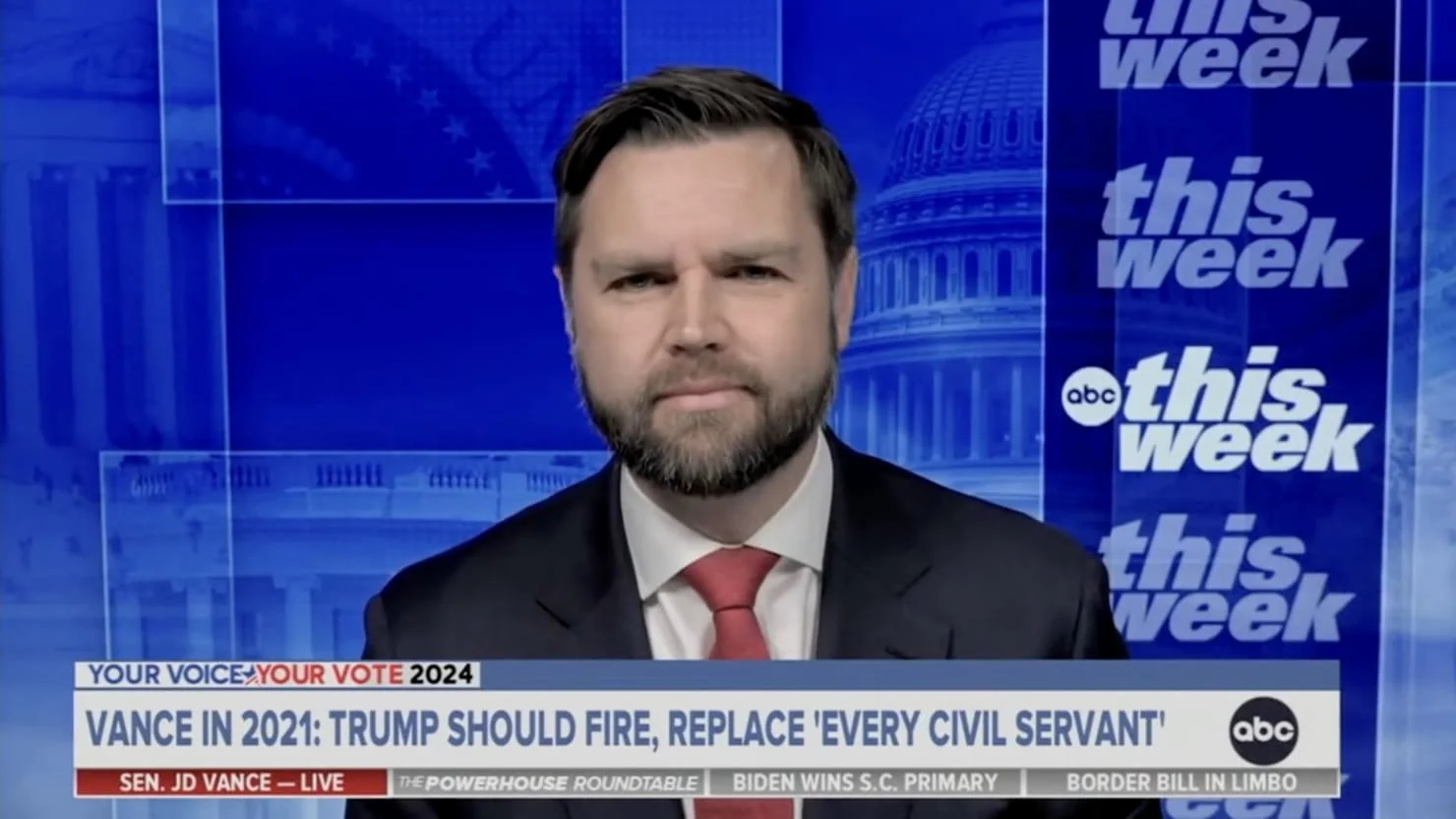In a recent episode of ABC’s “This Week,” a significant and contentious discussion unfolded between host George Stephanopoulos and Senator J.D. Vance (R-OH), capturing the nation’s attention. The interview, marked by its abrupt conclusion, delved into the intricate dynamics between the United States’ governmental branches, spotlighting the debate over presidential powers and their limits.
Senator Vance, who rose to prominence with his bestselling memoir “Hillbilly Elegy,” has been a vocal supporter of former President Donald Trump. His loyalty was put to the test during the interview as Stephanopoulos challenged him on statements made in 2021. Vance had suggested that Trump could, and perhaps should, challenge the entrenched bureaucratic system by disregarding Supreme Court decisions that thwarted his administrative agenda.
Drawing parallels to Andrew Jackson, the seventh President of the U.S., who infamously ignored a Supreme Court ruling in the Worcester v. Georgia case, Vance sought to clarify his stance. He argued that the crux of the matter was not about outright defiance of the Supreme Court but rather about addressing the failure of civil servants to execute the directives of elected officials. This, according to Vance, has led to adverse outcomes, including the tragic deaths of U.S. servicemen in Jordan.
However, Stephanopoulos zeroed in on the broader implications of Vance’s argument, particularly the notion that a president might selectively comply with Supreme Court decisions. This line of inquiry brought to light the foundational principles of the U.S. Constitution, which establishes a checks and balances system among the three branches of government to prevent any single branch from amassing excessive power.
The interview’s sudden end, with Stephanopoulos cutting off Vance’s microphone, underscored the heated nature of the debate surrounding presidential authority. It also highlighted the media’s role in moderating such discussions, challenging public figures on their views, and elucidating their implications for democratic governance.
This incident is reflective of broader tensions within the American political landscape, where discussions about the balance of power, the judiciary’s role, and the executive branch’s authority have become increasingly polarized. As the country grapples with these complex constitutional questions, the exchange between Stephanopoulos and Vance serves as a microcosm of the ongoing debate over the limits of executive authority and the critical importance of judicial independence in maintaining the rule of law.
The abrupt termination of the interview not only captured headlines but also ignited a broader conversation about the nature of presidential power and its boundaries. This dialogue is essential in a democracy, where the interpretation and application of constitutional principles are continually evolving. The incident between Stephanopoulos and Vance, therefore, is not just a moment of media spectacle but a significant point of reflection on the state of American democracy and governance.












Leave a Reply